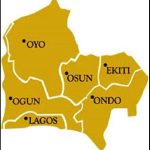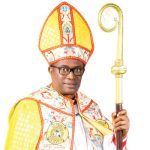
The SWL Foundation has awarded scholarships to six students from the Simisola Gbadamosi Scholarship Fund.
A statement by the foundation revealed its dedication to nurturing talent and potential among underprivileged children.
The SWL Foundation celebrated a significant milestone as the pioneer class of its Digital Life After School Program graduated.
As a non-profit organisation, the SWL Foundation is dedicated to improving the lives of underprivileged children, women, and families in Nigeria.
The Digital Life After School Program is part of the SWL Foundation’s ongoing efforts to bridge the technology gap in underserved communities. DLASP aligns with the Sustainable Development Goals four (Quality Education) and 10 (Reduced Inequalities), promoting inclusive and equitable education while addressing social inequalities by empowering low-income youth with the skills needed to thrive in the digital economy.
In an interview with Chairperson of the Executive Council, Tolulope Alabi, discussed the Foundation’s goal to bridge the digital divide for disadvantaged children.
He stated, “The digital landscape is evolving rapidly, reshaping our lives in profound ways. At SWL Foundation, we are committed to ensuring that children from disadvantaged backgrounds are not left behind in this transformation. Through the DLASP, we aim to be a catalyst for change, equipping these children with the critical skills they need to shape their futures and contribute to the growth of our economy.”
“The next group of the DLASP program has resumed classes, which will run for another three to six months.”
Alabi expressed hopes of finding sponsors to support the Foundation.
“Our mission has always been to give children the skills and confidence to rise above their circumstances. As we celebrate these young achievers, we are reminded that education is a powerful tool for breaking the cycle of poverty. We will continue to do this as long as we are able to find sponsors to support us.”
Program Manager, Tochi Onuchukwu, explained that the digital literacy program offered training for different age groups.
He noted, “The program was customised by our technical partners, NIIT, for various age groups, with younger children gaining foundational knowledge in Microsoft Office tools, while older students delve into more advanced programming courses, including Python, web development, HTML, and CSS.”



